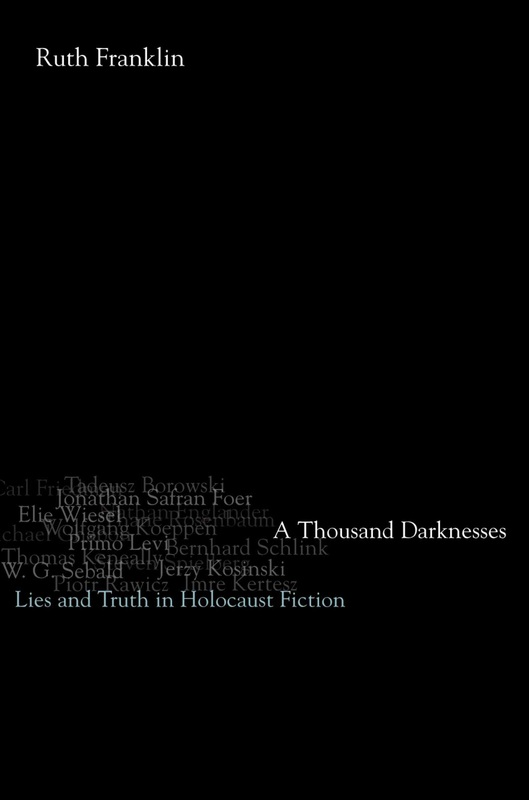 A Thousand Darknesses traces the often murky border between fiction and memoir in Holocaust literature. What is the essential difference between writing a novel about the Holocaust and fabricating a memoir? Do Holocaust narratives have a special obligation to be truthful — that is, faithful to the facts of history? Why are Holocaust writings so often thought to be exempt from the usual forms of criticism and interpretation? Taking a fresh look at a broad range of writings, from canonical memoirs by Elie Wiesel and Primo Levi to lesser-known fiction by Tadeusz Borowski, Piotr Rawicz, and W.G. Sebald, Ruth Franklin discovers that all these works occupy both sides of the line dividing fiction from reality — making easy categorizations impossible.
A Thousand Darknesses traces the often murky border between fiction and memoir in Holocaust literature. What is the essential difference between writing a novel about the Holocaust and fabricating a memoir? Do Holocaust narratives have a special obligation to be truthful — that is, faithful to the facts of history? Why are Holocaust writings so often thought to be exempt from the usual forms of criticism and interpretation? Taking a fresh look at a broad range of writings, from canonical memoirs by Elie Wiesel and Primo Levi to lesser-known fiction by Tadeusz Borowski, Piotr Rawicz, and W.G. Sebald, Ruth Franklin discovers that all these works occupy both sides of the line dividing fiction from reality — making easy categorizations impossible.
Reviews
“A Thousand Darknesses … is more than a towering work of criticism and insight — it’s an invaluable corrective.”
—The Atlantic
“By scrupulously defending the integrity of literature about, Ms. Franklin has offered her own eloquent testimony.”
—Wall Street Journal
“…a brilliant, challenging and surprising work.”
—Jewish Journal